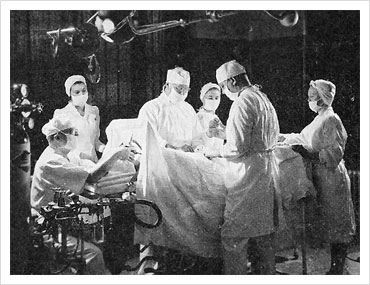 Recently I wrote about one of my key product principles that is particularly relevant for designing software for the enterprise. The principle is called the Zero Overhead Principle, and it states that no feature may add training costs to the user.
Recently I wrote about one of my key product principles that is particularly relevant for designing software for the enterprise. The principle is called the Zero Overhead Principle, and it states that no feature may add training costs to the user.
The essence of the Zero Overhead Principle is that consumer products have figured out how to turn the “how-to manual” into a relic. They’ve focused on creating a glide path for the user to quickly move from newbie to proficient in minimal time. Put another way, the products must teach the user how they should be used.
Just this weekend, I downloaded a new game for my son on the iPad, and he was a pro in a matter of minutes (or at least proficient enough to kick my butt). No manual required. In fact, he didn’t even read anything before starting to play. This highly optimized glide path is exactly what we need to focus on when we talk about the consumerization of the enterprise.
This week, the first Strata RX conference will focus on bringing data and health together. Just as in national security (the place where we came up with the Zero Overhead Principle to help combat the lack of tech adoption by overloaded security analysts), there is tremendous opportunity to apply lessons learned in the consumer space to the health care sector. We know the space needs disruption and it is a way to make constructive disruption with a rapid adoption cycle.
Take, for example, my sister who recently started her residency at one of the most well regarded medical institutions in the world. How did her training start? With a meet and greet so all the residents could get to know each other? An orientation on what they could expect from their training? Or perhaps, an inspiring speech about the choice they’ve made? No, none of the above. Her first day started with an eight-hour training on health IT systems! Only the day after did they finally have a meet and greet.
As another example, talking to a chief physician of a major health care division, this person told me about how they have worked to create programs where one physician can help another to increase proficiency on their state-of-the-art IT systems. When I pushed on why they would want to spend such critical time in this way, this person remarked about the amount of time physicians spend working in those systems (e.g., reviewing films, tests, etc). To me this is horrifying. Health care professionals (not just the physicians) go through tremendous training, already have brutal hours where they are literally making life and death decisions, and now we’re subjecting them to an absurd amount of overhead training due to the IT systems. Sure the systems are complex, but so are Google, Facebook, and LinkedIn. When was the last time you looked at a manual or took a training class for any of those products? We must not allow complexity to be used as an excuse to accept technology that requires anything short of the Zero Overhead Principle.
The time to consumerize health care is now. Just like entrepreneurs are doing with the enterprise, we need to apply consumer product principles to health care. Let’s build systems that create a dialogue with users. For example, when someone gives a dosage of 100 mg/liter instead of 10 mg/liter the technology presents a dialogue box that simply asks, “Did you mean 10 mg/liter?” instead of providing either an obtrusive error message, or worse, letting the mistake happen. Let’s focus on the design of our technology to be interactive so that it facilitates efficiency. For example, when a physician enters a diagnosis, they are also presented with a dialogue that says, “Some people who were diagnosed with X were also diagnosed with Y.” This functionality is the equivalent of the serendipity that Amazon provides when users are browsing or checking out of their site, and it can be totally relevant and helpful for health care systems.
The bottom line is there is no excuse for violating the Zero Overhead Principle even in areas as complex as health care. By leveraging the key lessons that are now standard in the consumer space, we can put the power back into the health care provider’s hands.
Dr. DJ Patil is a Data Scientist in Residence at Greylock Partners. More details can be found on his LinkedIn profile and you can follow him on Twitter at @dpatil.
Related:
